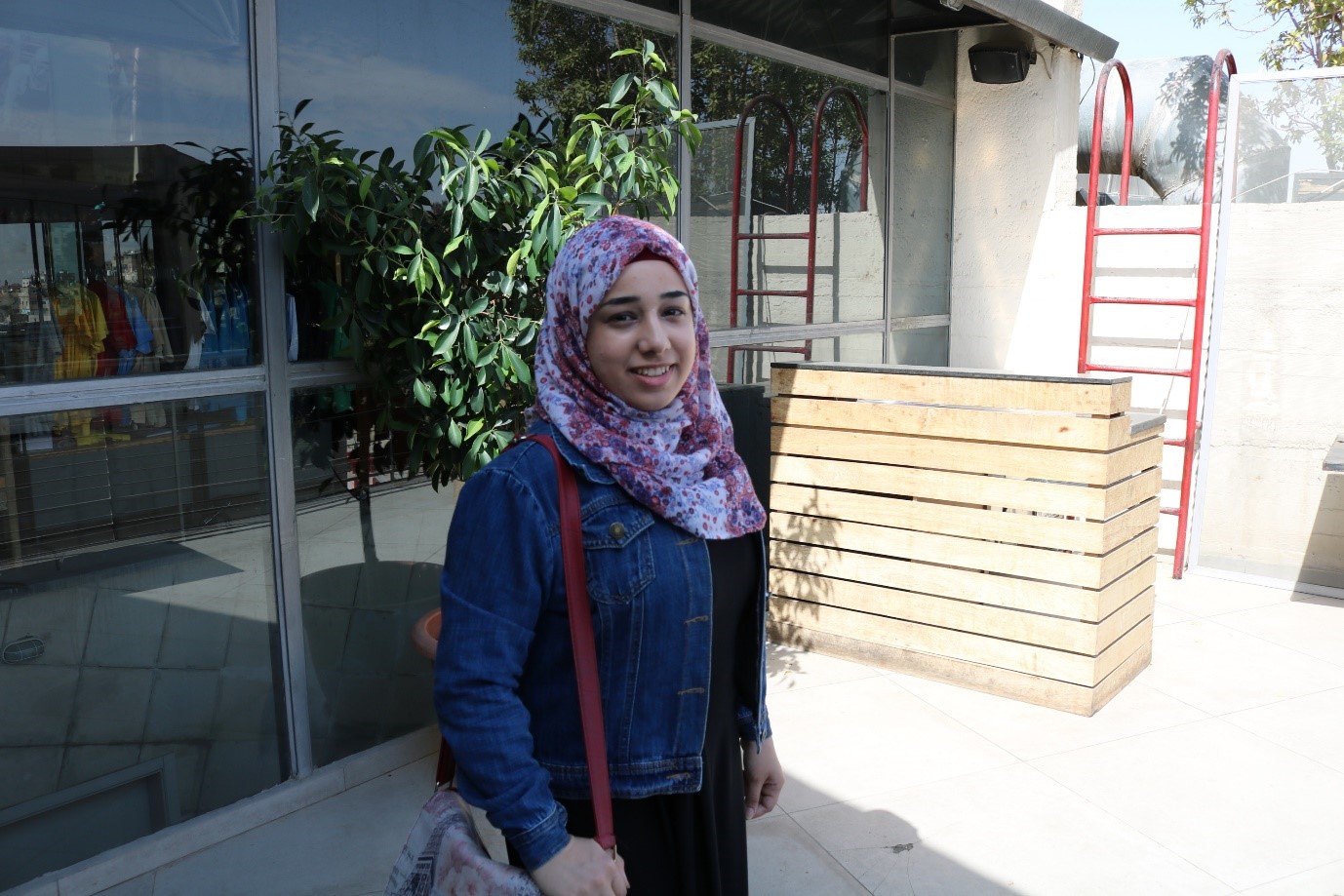The Disasters and Emergencies Preparedness Programme (DEPP) Innovation Labs is a two-year programme that aims to foster, and eventually scale up, innovations that address key problems faced by disaster-prone communities. The programme has established ‘lab’ spaces in disaster-prone communities in Bangladesh, Jordan, Kenya and Philippines. Mahali lab is based in Amman, Jordan, and is one of the programme’s four country labs. Manal Taha Al Najjar is one of Mahali’s innovators.
Manal Taha Al Najjar is a 22-year-old Syrian refugee living in Jordan. She heard about the Mahali lab through Facebook: ‘What attracted me, I still remember, was the first sentence of the Mahali advert, ‘If you are a changemaker in your community and you want to make a difference, this is for you’. I had volunteered before teaching children and orphans, but I did not feel that I had made a difference…
Manal successfully applied and qualified to participate in the second design sprint, which focuses on how to improve access to and quality of critical health services. The problem her team identified was that chronic disease medicine is unaffordable for vulnerable and uninsured Syrians and Jordanians. This problem directly affects Manal, her family, her team and her community and this helps motivate them.
Their innovation is Medicine Bank, a stock management tool that connects medicines that are approaching their expiry date to vulnerable chronic disease patients who can buy them from pharmaceutical producers and local pharmacies at a reduced rate. However, coming up with such an innovative idea was not easy. Manal describes the programme as ‘new and novel’ because unlike other programmes that simply replicate an existing fix, participants are expected to define the problem and develop the solution.
‘We felt lost in the beginning because…we did not know the problem and we did not know the solution, but we adventured and explored. We went through many different stages to come up with the solution. Our initial idea was to collect the surplus medication from the people that don’t need it, but we faced many legal obstacles. Through field research and speaking with Pharmacies we realised that lots of medication that is returned to the factories and destroyed [because it is nearing its expiry]. We started working on using this medication to implement our solution’.
Training, support and being the change
The Mahali lab provided Manal and her team with a customised package of support including training on the innovation process, research, human-centred design, prototyping and testing, business models and finances, and stakeholder analysis. The lab brokered partnerships between the team, their target community and external organisations that they would not normally have access to, for example Hikma Pharmaceuticals and Irbid Speciality Hospital.
Lab staff also provided technical, moral and motivational support, ‘Mahali always told us that we must do more, they always pushed us to the limits and towards developing our solution. The lab showed us the right direction and helps guide our movements. At some points we felt that the staff helping us were part of the team’. This support proved essential in helping Manal’s team develop and refine their solution and qualify for Shamal Start, an incubator that will help them scale their idea. ‘At the beginning, we did not think that we would be able to come up with this solution. I am surprised by what we have achieved. If Mahali had not existed, our idea would not exist.’
Manal Taha Al Najjar, Jordan
Mahali Lab has had an extremely positive impact on Manal as a person.
‘It has helped me develop my presentation skills and given me the confidence to…defend my point of view. My mother recognises the change in me most. Before Mahali I was only sitting at home alone, I didn’t like to go out, I was inverted with some level of depression, but Mahali has made me a happier person. It changed my mind-set, from a person who focuses on problems, to one that looks for solutions. If you believe in what you are doing you will always reach a solution.’
On International Women’s Day, the Start Network is paying tribute to the unsung warriors of this world. The mothers. The carers. The workers. And, the women changing the way aid works for the better.
Read more about the role of women creating change within the humanitarian system.

